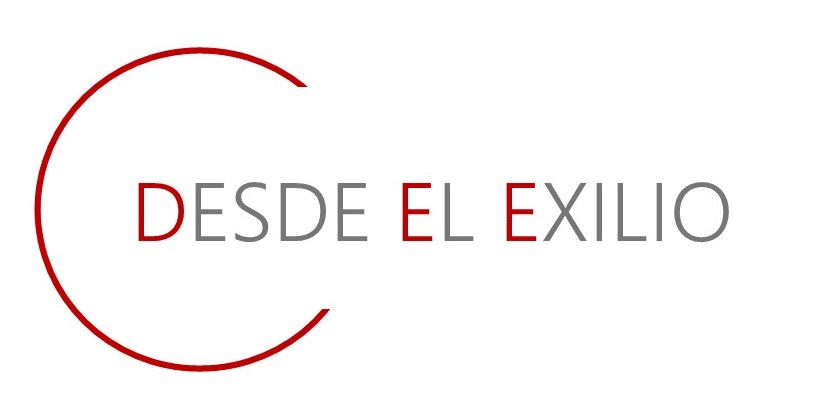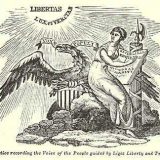Resulta que, en busca del discurso de Michael Crichton ante el Senado Norteamericano, me entero de que la web oficial del fallecido escritor ha sufrido una importante reforma. Ignoro quien es el actual responsable. Puede ser alguien de la familia, puede ser su editor. El caso es que sus discursos y ensayos sobre cambio climático han desaparecido misteriosamente de su web personal. Flaco favor a la memoria de quien con tanto ahínco se dedicó a combatir el oscurantismo científico que rodea al traído y llevado asunto del Cambio Climático Antropogénico, antes Calentamiento Global.
Como necesitaba esos escritos he estado tirando de google y algunos e-mails a malvadísimos negacionistas (thank you, Mark for the statement on Senate committee) con resultados más que positivos. Visto que desde la web del propio Crichton es imposible acceder a esos materiales, he decidido guardarme tres en el servidor de «Desde el exilio», lo que me permite compartirlos con ustedes para siempre. Están en formato .doc, lo que los hace accesibles para todo el mundo:
Today, one of the most powerful religions in the Western World is environmentalism. Environmentalism seems to be the religion of choice for urban atheists. Why do I say it’s a religion? Well, just look at the beliefs. If you look carefully, you see that environmentalism is in fact a perfect 21st century remapping of traditional Judeo-Christian beliefs and myths.
There’s an initial Eden, a paradise, a state of grace and unity with nature, there’s a fall from grace into a state of pollution as a result of eating from the tree of knowledge, and as a result of our actions there is a judgment day coming for us all. We are all energy sinners, doomed to die, unless we seek salvation, which is now called sustainability. Sustainability is salvation in the church of the environment. Just as organic food is its communion, that pesticide-free wafer that the right people with the right beliefs, imbibe.
The Role of Science in Environmental Policy-Making
Policymakers need sound answers to the questions they ask. A better way to get them might be to give research grants for important projects to three independent teams simultaneously. A provision of the grant would be that at the end of the study period, all three papers would be published together, with each group commenting on the findings of the other. I believe this would be the fastest way to get verified answers to important questions.
But if independent verification is the heart of science, what should policymakers do with research that is unverifiable? For example, the UN Third Assessment Report defines general circulation climate models as unverifiable. If that’s true, are their predictions of any use to policymakers?
The Case for Skepticism on Global Warming
I still believe that environmental awareness is desperately important. The environment is our shared life support system, it is what we pass on to the next generation, and how we act today has consequences—potentially serious consequences—for future generations. But I have also come to believe that our conventional wisdom is wrongheaded, unscientific, badly out of date, and damaging to the environment. Yellowstone National Park has raw sewage seeping out of the ground. We must be doing something wrong.
In my view, our approach to global warming exemplifies everything that is wrong with our approach to the environment. We are basing our decisions on speculation, not evidence. Proponents are pressing their views with more PR than scientific data. Indeed, we have allowed the whole issue to be politicized—red vs blue, Republican vs Democrat. This is in my view absurd. Data aren’t political. Data are data. Politics leads you in the direction of a belief. Data, if you follow them, lead you to truth.
Así que ya saben: cuando quieran citar o releer al gran Michael Crichton, aquí tiene un par de documentos a su disposición (basta con hacer clic sobre los enlaces, se descarga automáticamente). Los administradores de la herencia intelectual del escritor no creen que sea importante conservar estos documentos. Yo sí.






Me gustaba Chrichton antes de que escribiera sobre «the great Rock and Roll climate swindle”, después leyendo sus artículos y conferencias descubrí por qué, a este tipo no le importa ir contra corriente, en realidad disfruta con ello y es cuando realmente se siente a gusto, al contrario que otros que han catalogado en su mismo grupo como best-sellers.
Siempre se mueren los tipos mas interesantes, otros que no aportan nada viven tanto!!
http://www.crichton-official.com/essay-stateoffear-whypoliticizedscienceisdangerous.html
Gracias Juan. Ya ves que es el único ensayo que queda 🙁
Como escribiera George Orwell en «1984»: «Quien controla el pasado, controla el futuro». Eso lo saben (y lo practican) muy bien nuestros conocidos calentólogos: cuando no lo pueden modificar, intentan suprimirlo.
Por eso Sinde y sus correligionarios de todo el mundo ven a Internet como su enemigo, y quieren tener un dominio absoluto sobre la red.
Es nuestro deber impedirlo.
Aquí teneis otra de sus conferencias, que me gustó especialmente: http://wattsupwiththat.com/2010/07/09/aliens-cause-global-warming-a-caltech-lecture-by-michael-crichton/
Y aquí parecen estar todos los ensayos metidos en un zip:
http://www.fileindexer.com/find/Michael-Crichton-Speeches
http://www.fileindexer.com/find/Michael-Crichton-essays
En liberalismo.org hay algunos de sus ensayos traducidos: http://www.liberalismo.org/autor/crichton/
¡Saludos!
Gracias Francisco! Me pongo a guardar cosas.
Qué bueno, te sale publicidad de GreenPeace en tu página. Je, je.
Claro! a nosotros no nos pagan las petroleras, como creen los conspiracionistas verdes: nos paga Greenpeace 😀
Yo he hecho click para que te llegue algún centimillo.
Muchas gracias!
Gran novelista, y tipo muy sensato
Luis,
durante mi encierro navideño en los bosques y las nieves tuve el placer de leerme de un tirón «Estado de Miedo» de Michael Crichton. Disfruté como un enano. Gran novela que presenta muy bien lo que es la secta climática hoy en dia.
Chapeau!.
yo también guardé en su día un discurso que igualmente ha sido eliminado de la web, se llama «Complexity Theory and Environmental Management», no sé cómo hacértelo llegar, si te interesa.
Si vas a «Contacto» aquí mismo en el blog, me puedes enviar un breve mensaje. Ya te paso entonces mi dirección de e-mail. Gracias!
Y no podríamos, al menos…. insultar a alguien????